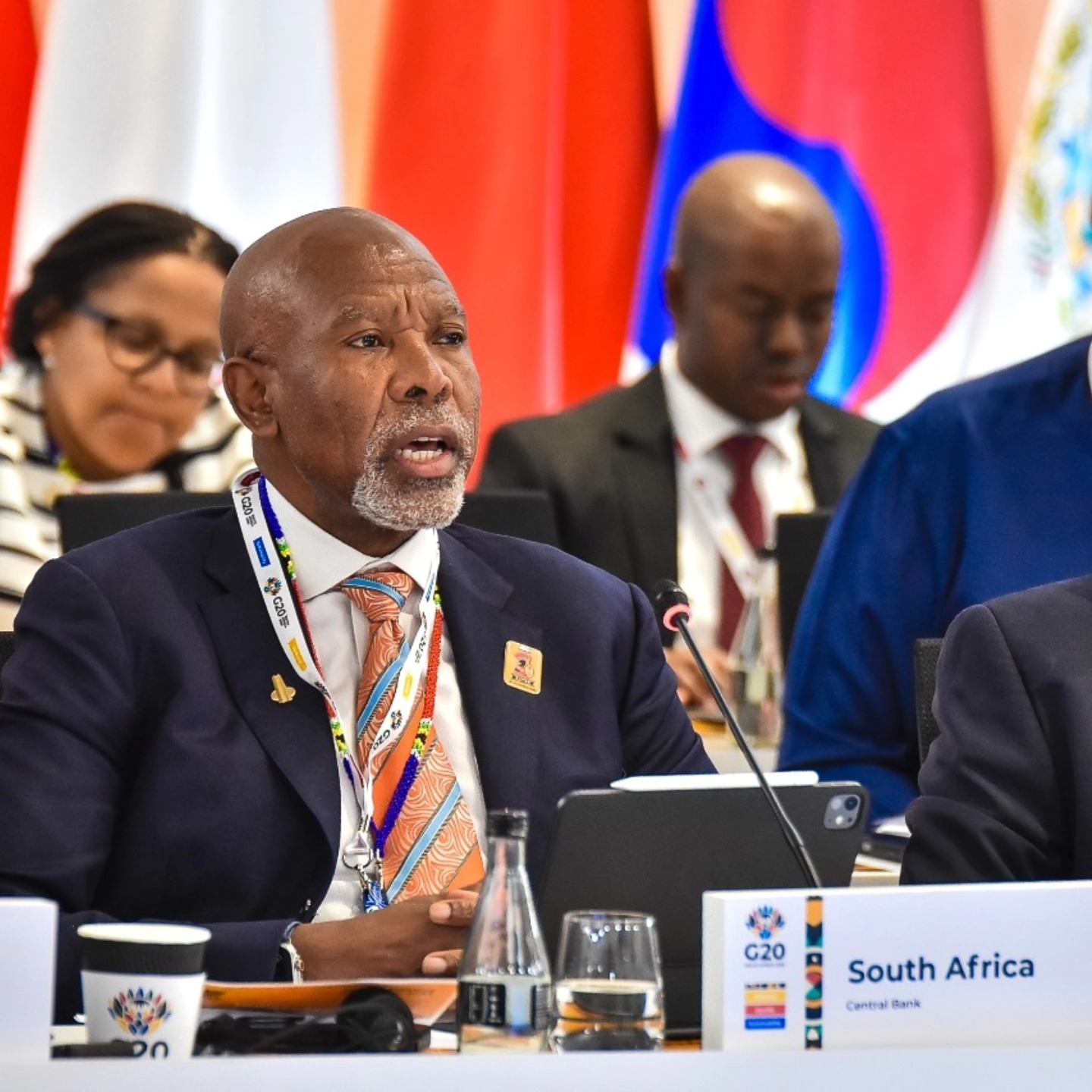SARB Governor Urges G20 to Tackle Global Disaster Insurance Gap Amid Rising Climate Risks
Addressing leaders at the G20 Finance Ministers and Central Bank Governors (FMCBG) meetings, the SARB Governor highlighted the systemic risks posed by the insurance gap.

- Country:
- South Africa
As climate change continues to amplify the frequency and severity of natural disasters globally, South African Reserve Bank (SARB) Governor Lesetja Kganyago has issued a stark warning to the world’s leading economies. Speaking at a pivotal G20 meeting in Durban, Kganyago emphasized the urgent need for coordinated action to close the growing insurance protection gap for natural catastrophes (NatCats), especially in emerging markets and developing economies (EMDEs).
Understanding the Insurance Protection Gap
The "natural catastrophe insurance protection gap" refers to the disparity between total economic losses and insured losses resulting from natural disasters such as floods, hurricanes, droughts, and wildfires. This gap leaves nations, communities, and economies vulnerable to prolonged recovery periods, with EMDEs bearing a disproportionate share of the burden.
According to Kganyago, “Over half of natural disaster losses globally remain uninsured, and in EMDEs, that figure often exceeds 70%. South Africa’s gap stands at 71%, while India’s is an alarming 91%.” This results in households, businesses, and governments absorbing the bulk of the financial blow, which in turn impedes long-term development and exacerbates poverty and inequality.
Economic and Financial System Risks
Addressing leaders at the G20 Finance Ministers and Central Bank Governors (FMCBG) meetings, the SARB Governor highlighted the systemic risks posed by the insurance gap. “This is not a peripheral issue,” he stated. “From a central banking and financial stability perspective, uninsured losses from natural disasters can threaten the solvency of financial institutions, disrupt credit markets, and destabilize economies.”
Moreover, when governments are forced to intervene post-disaster with emergency relief or reconstruction efforts funded by debt, it adds to already constrained fiscal resources. This increases the long-term economic burden and reduces resilience to future shocks.
Challenges in Emerging Markets
Emerging economies often struggle with:
-
Low insurance penetration due to affordability issues,
-
Limited access to accurate climate risk models,
-
Weak financial infrastructure, and
-
Underdeveloped insurance markets.
Even developed economies are not immune. Recent natural disasters in Europe have exposed vulnerabilities in disaster preparedness and insurance uptake, reinforcing the need for global solutions.
A Call for Global Cooperation and Innovation
Kganyago called on G20 leaders to pursue multi-sectoral solutions and to think beyond traditional insurance models. He advocated for:
-
Improved risk-sharing mechanisms: Regional insurance pools can help spread risk more effectively.
-
Enhanced data and modelling tools: Reliable, localized climate risk data is essential for designing appropriate insurance products.
-
Innovative insurance products: Instruments like catastrophe bonds and parametric insurance (which pays out based on predefined event triggers) can offer faster and more predictable relief.
-
Policy reform: Governments should embed financial resilience into climate adaptation strategies and promote inclusive regulatory frameworks that support insurance expansion.
“Resilience,” Kganyago said, “is not built after disasters strike, but in the planning that precedes them. Insurance is not a luxury; it’s a critical development tool.”
A G20 Agenda for Financial Resilience
The side event, co-hosted by South Africa (as G20 President), the International Association of Insurance Supervisors (IAIS), and the World Bank Group (WBG), focused on embedding disaster risk financing within sustainable development and financial inclusion frameworks.
This initiative aligns with South Africa’s G20 Presidency theme — "Solidarity, Equality and Sustainability" — and the Sustainable Finance Working Group’s priority of mobilizing climate adaptation finance, especially for just transitions.
Guidance for Action: Upcoming Input Paper
The discussions will be followed by the release of an input paper prepared by the IAIS and WBG, designed as a practical roadmap for countries seeking to reduce their NatCat insurance protection gaps. Scheduled for publication on 21 July 2025, the paper outlines actionable policy recommendations for governments, regulators, and insurers, with a focus on affordability, accessibility, and long-term resilience.
The paper will be available at the G20 Sustainable Finance Working Group (SFWG) document repository: https://g20sfwg.org/document-repository/
Governor Kganyago’s remarks serve as a powerful reminder that natural disaster risk is both a climate and economic issue. As climate change continues to escalate global vulnerabilities, bridging the insurance protection gap is critical for safeguarding development gains, ensuring macro-financial stability, and preparing for the inevitable shocks of a warming world.
- READ MORE ON:
- natural disasters
- climate risk
- insurance protection gap
- SARB
- Lesetja Kganyago
- G20
- EMDEs
- financial resilience
- disaster risk financing
- South Africa
- IAIS
- World Bank Group
- sustainable development
- catastrophe insurance
- fiscal policy
- parametric insurance
- climate adaptation
- economic stability
- SFWG
- G20 2025










